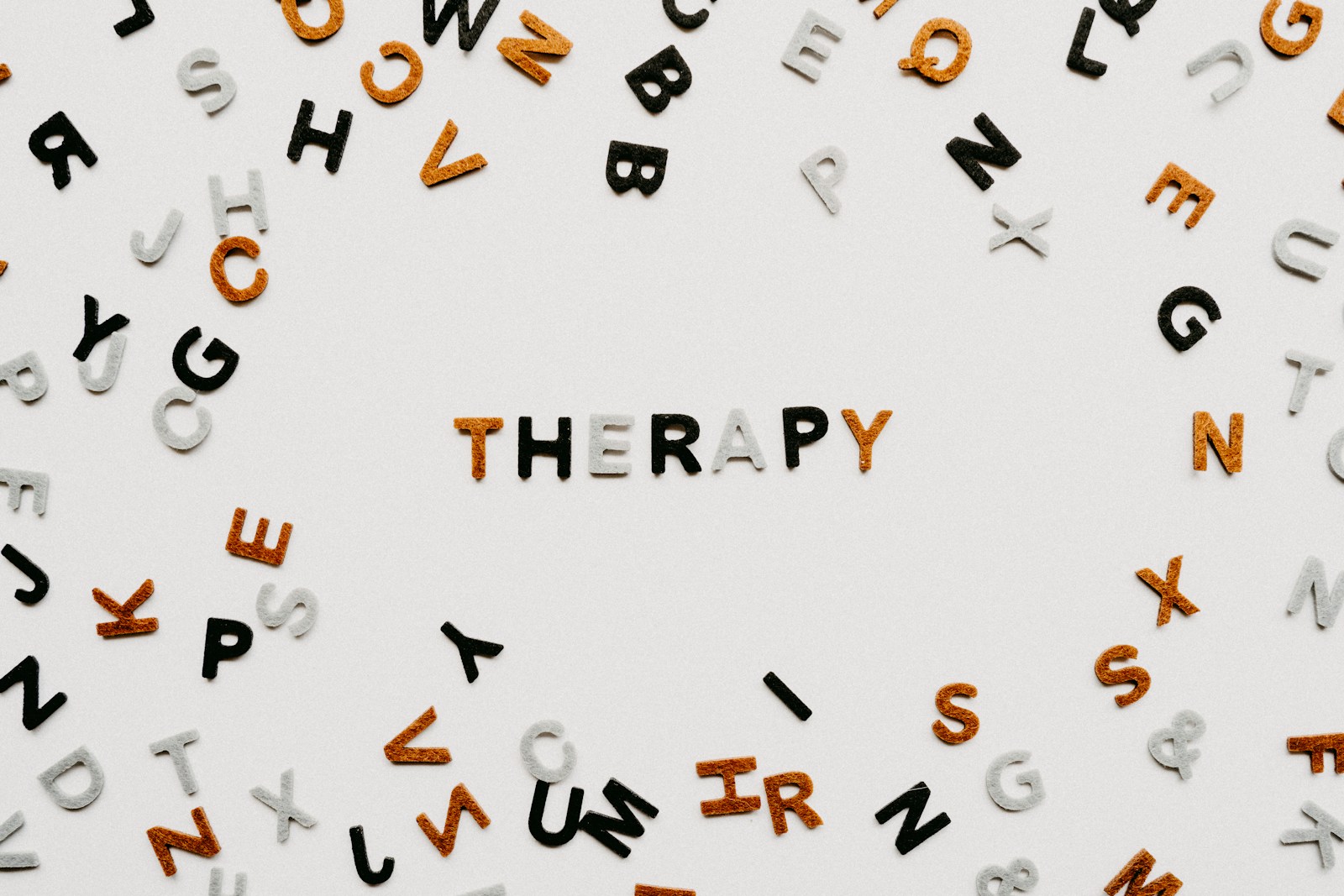As a licensed psychologist, I’ve seen firsthand how individual therapy sessions can transform lives. It’s a dedicated space where you can be fully seen, heard, and supported without judgment. This journey, often called talk therapy or individual counseling, creates a safe environment to work through mental health issues, build resilience, and achieve your personal goals. If you’re seeking clarity, confidence, and lasting emotional health, individual therapy is a powerful step forward.
This guide will walk you through what individual therapy is, the different techniques used, and the profound benefits it can offer. My hope is to provide a clear and supportive roadmap for your path to healing and personal growth.

Photo by Priscilla Du Preez 🇨🇦 on Unsplash
What Is the Meaning of Individual Therapy?
Individual therapy is a structured, evidence-based process between a licensed mental health professional and a client. It’s a collaborative partnership designed to help you understand your thoughts, emotions, and behavior patterns. Often called “talk therapy,” it provides a confidential, one-on-one setting where you can explore your challenges and aspirations.
Unlike group therapy or family therapy, which involve multiple participants, individual therapy is focused entirely on you. The purpose is to help you manage troubling emotions, navigate difficult life transitions, and improve your overall well-being. It’s a personalized experience where your unique needs and treatment goals shape the direction of every session.
What Is Also Known as Individual Therapy?
You might hear individual therapy referred to by several names, all pointing to the same core process. These terms include:
Ready to Start Therapy?
Your healing journey can begin today. Fill out the form below to connect with a therapist who truly listens and understands.
- Individual counseling
- Individual psychotherapy
- Talk therapy
While these terms are often used interchangeably, they all describe a therapeutic process customized to your personal issues. Whether you’re dealing with a specific mental health condition or seeking self-improvement, the focus is always on your individual journey and treatment goals.

Photo by Polina Tankilevitch on Pexels
The Individual Therapy Technique
A variety of therapeutic approaches can be used in individual therapy, and a skilled therapist will tailor the technique to your specific needs. My approach is rooted in providing personalized, evidence-based treatments that empower you to heal and grow.
Here are some common and effective therapeutic techniques:
Cognitive Behavioral Therapy (CBT)
CBT is a widely used approach that helps you identify and challenge negative thoughts and behavior patterns. By understanding the connection between your thoughts, feelings, and actions, you can learn to reframe unhelpful beliefs and develop healthier habits.
Behavior Therapy
This approach focuses on changing specific actions and habits to achieve different outcomes. It’s a practical, goal-oriented method for addressing behaviors that are holding you back.
Dialectical Behavior Therapy (DBT)
My core approach, DBT, is especially powerful for those who have experienced trauma or struggle with intense emotions. It integrates mindfulness, distress tolerance, emotion regulation, and interpersonal effectiveness skills to help you build a life worth living. It’s about finding balance and developing concrete skills to navigate life’s challenges.
The therapeutic process typically follows a structured path, including an initial assessment to understand your history and needs, collaboratively setting treatment goals, engaging in weekly therapy sessions to work toward those goals, and regularly reviewing your progress.
The Benefits of Individual Therapy for Your Mental Health
Individual therapy offers powerful support for individuals struggling with a wide range of mental health conditions, including depression, anxiety, bipolar disorder, eating disorders, and substance use disorders. It can be an effective treatment on its own or complement medical treatments for a related medical condition.
Whether you engage in short-term therapy for a few weeks to address a specific issue or commit to long-term therapy for deeper, more complex work, the potential benefits are significant.
Some of the key benefits of individual therapy include:
- Greater Self-Awareness: Therapy helps you gain a deeper understanding of yourself and the underlying causes of your struggles.
- Improved Coping and Communication Skills: You will learn practical coping skills to manage stress and difficult emotions, as well as enhance your communication skills to build healthier relationships.
- Increased Resilience and Self-Esteem: The therapeutic process empowers you to build resilience, strengthen your self-esteem, and cultivate emotional balance.
Group Therapy vs. Family Therapy vs. Individual Therapy: Which Mental Health Treatment Is Right for You?
Understanding the differences between therapy formats can help you choose the right path for your needs.
Group Therapy
This format brings together a small group of individuals with shared challenges. It is a supportive, community-focused setting that can be particularly helpful for support groups and learning from others’ experiences.
Family Therapy
Designed to strengthen family relationships, family therapy improves communication and helps support a family member through a crisis. The focus is on the family system as a whole.
Couples Therapy
This type of therapy is focused on improving intimacy, resolving conflict, and strengthening the bond between romantic partners.
Many clients prefer to start with individual counseling because it offers complete privacy and a singular focus on their personal goals. This dedicated attention allows for deep, uninterrupted exploration of sensitive issues.
Benefits of Individual Counseling and Individual Psychotherapy
The personalized nature of individual psychotherapy offers distinct advantages that foster deep and lasting change.
- Personalized Attention: You receive the undivided attention of a trained professional who is dedicated to your growth and well-being.
- Privacy and Confidentiality: Individual therapy provides a safe, confidential space to explore sensitive or complex personal issues without fear of judgment.
- A Custom Treatment Plan: Your treatment plan and therapy goals are built around you, offering greater flexibility and a more tailored therapeutic experience.
- Improved Daily Life: The skills and insights gained in therapy can lead to significant improvements in your daily life, healthier behavior patterns, and fewer relapses for chronic mental health conditions.
Flexible Scheduling and Modern Approaches
I understand that life is busy. That’s why I offer flexible scheduling and modern, accessible therapy options. With the rise of online therapy, it is now possible to receive high-quality care from the comfort of your own home. I provide telepsychology services to clients in over 40 states, making it easier than ever to prioritize your mental health. If you’re preparing for a therapy appointment, knowing what to expect can help you make the most of your session.
My treatment approach adapts to meet your specific challenges—from managing moderate depression to recovering from trauma or substance abuse. The goal is always to provide the most effective treatment for your unique circumstances.
The Therapeutic Journey: What to Expect
Embarking on a therapeutic journey is a courageous step. Counseling sessions typically involve open discussion, skill-building exercises, and guided reflection. The process begins with establishing clear treatment goals and continues with regular progress reviews to ensure the methods we’re using are effective for you.
A key component of successful therapy is the therapeutic alliance—the trusting, collaborative relationship between you and your therapist. My primary goal is to create a space where you feel heard, understood, and empowered to grow. I am here to guide and support you, but you are the expert on your own life. Together, we will navigate the path to healing.

Why Individual Therapy Can Change Your Life
Individual therapy sessions are a highly effective treatment for mental health disorders and the many challenges life throws our way. But therapy is about more than just reducing symptoms. It’s an investment in yourself—commitment to cultivating self-awareness, building resilience, and fostering long-term emotional health. It is a journey that can lead to profound personal transformation and a more fulfilling life.
If you’re ready to begin your therapeutic journey, I invite you to explore how Groundbreaker Therapy can support your path to healing and personal growth.
Schedule a consultation today and take the first step toward creating a life that works for you. If you’re navigating a period of change, discover essential steps for navigating life’s transitions



